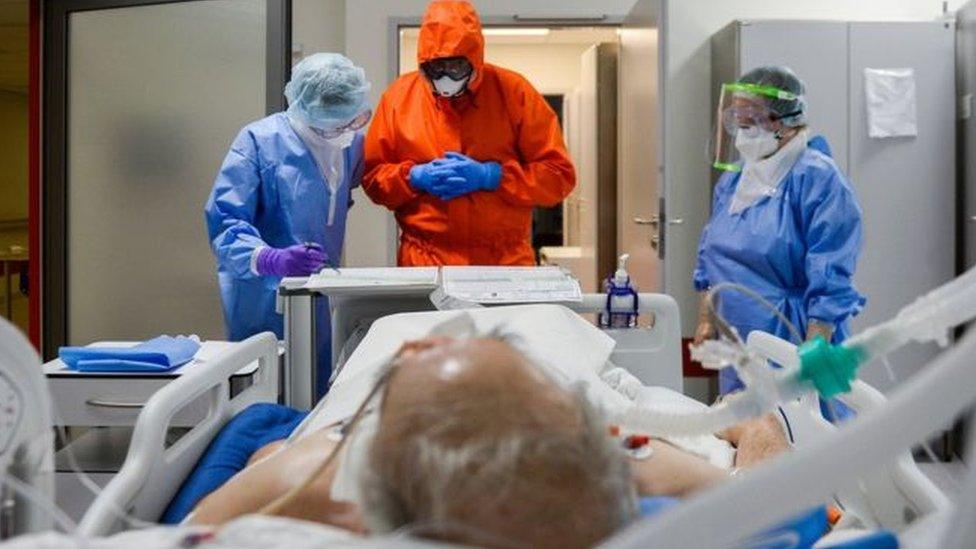Scottish universities join Covid-19 long-term health impact study
- Published

About 10,000 patients who have had the disease are expected to take part in the study
Four Scottish universities will take part in a new UK research study into the long-term health impacts of Covid-19 on hospitalised patients.
The Universities of Dundee, Edinburgh, Aberdeen, and Glasgow are among 25 UK organisations in the PHOSP-COVID study., external
The £8.4m project is one of a number of Covid-19 studies given urgent public health research status by the Department of Health and Social Care.
About 10,000 patients are expected to participate in the next year.
More than 1,000 of the patients in the study are expected to come from Scotland.
The study is being led by the National Institute for Health Research Leicester Biomedical Research Centre.
'Patients feel forgotten'
It will attempt to understand why some people recover more quickly than others and why some patients develop subsequent health problems.
The study will also identifying the most effective treatments received in hospital or afterwards and how to improve patient care after they are discharged.
Patients on the study will be assessed using techniques such as advanced imaging, data collection and analysis of blood and lung samples.
The PHOSP-COVID team will then develop trials of new strategies for clinical care.
Prof James Chalmers of Dundee University is the Scottish lead on the study.
He said: "Many of my patients feel forgotten because all of the focus has been on treating and preventing the immediate effects of the virus.
"The message today is that you have not been forgotten and those patients still struggling weeks and months after Covid are going to get the support and research they need."

40,000 DEATHS: Could they have been prevented?
FACE MASKS: When should you wear one?
TESTING: Who can get a test and how?
